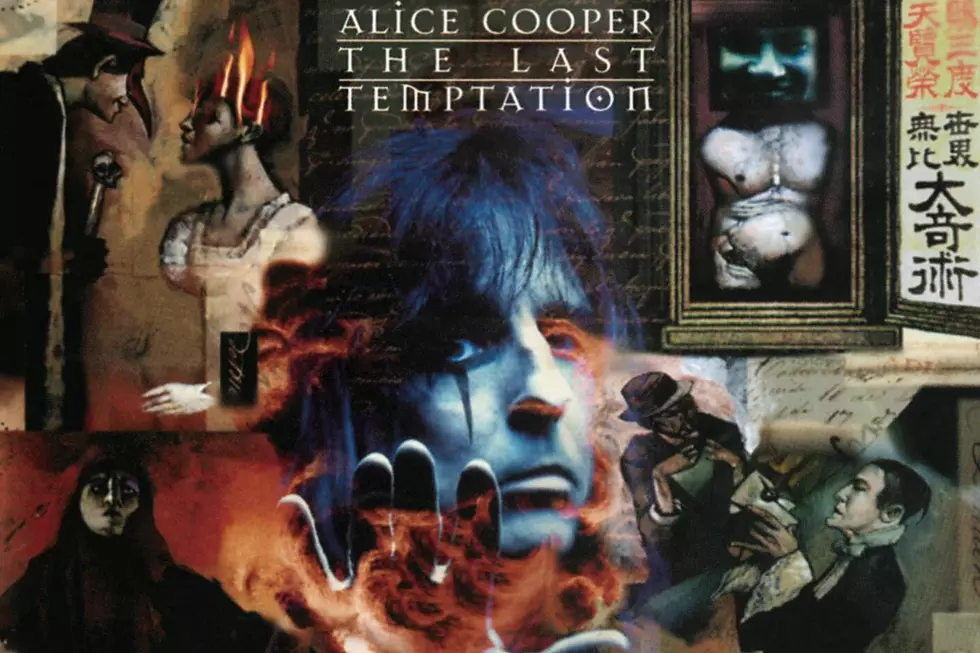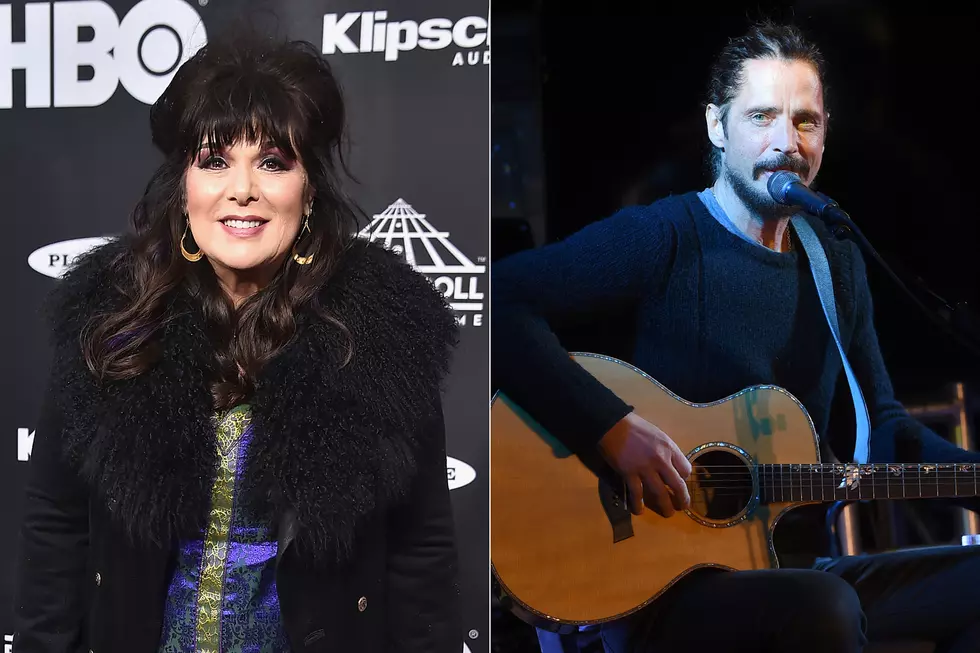
25 Years Ago: Alice Cooper Finds a Kindred Spirit With Chris Cornell
Alice Cooper got back on track after the more pop-leaning turn-of-the-decade albums Trash and Hey Stoopid by returning to what he does best: A dark plot involving a boy named Steven – the same character featured in Cooper's classic Welcome to My Nightmare – and harder-edged sounds.
Released in July 1994, The Last Temptation also tapped into the era-defining grunge sound by including two songs co-written by Chris Cornell of Soundgarden. It arrived with the first of a three-part comic. The Neil Gaiman-written series filled out a narrative in which Steven is propositioned by a shadowy showman who wants him to join the Theater of the Real, starring the Grand-est Guignol, with a promise that the teen would never grow up.
But record buyers in Cooper's homeland didn't immediately come back around: The album stalled at No. 68 on the chart. In the U.K., however, The Last Temptation became Cooper's third consecutive Top 10 smash. It also began something of a trilogy, with 2000's Brutal Plant and 2001's Dragontown following.
In an exclusive UCR interview, Cooper talks about the comic, which songs from The Last Temptation still resonate today and how he connected with the late Cornell.
Watch Alice Cooper's 'Lost in America' Video
What do you remember about working on The Last Temptation?
Neil Gaiman and I got together and wrote the storyline of it, not really thinking about a comic book at the time. And then they decided it should be a comic book first, and that it should come right along with the show and with the album. So, working with Neil was great, because Neil and I would walk for 10 miles and just talk about, “Okay, what would happen with this guy? Who is he really? He’s the Everykid that’s getting offered everything in the world by this showman. What if he says no? That turns the teenager into the hero. Because he had the power to say no to this guy."
That created the part in the comic book where all you saw were these really pretty girls. But when you saw the back of them, they were all rotted away. And I thought that was a really great way of saying that the facial value of this thing, that’s all it was. But when you saw what was really behind it, it was all rotting away. And the kid was smart enough to understand that.
How did you come to work with Chris Cornell on a couple songs?
It was a perfect kind of time. I really liked “Black Hole Sun,” and I met Chris Cornell and said, “You know, I really like the Seattle sound. It’s a different version of sort of a classic guitar-rock sound, but it’s got some depth to it that I really like.” I said, “Do you have anything like that that I could write lyrics to?” He played me “Unholy War,” and I wrote the lyrics around that. And [he also showed me] “Stolen Prayer.” I said, “That’s so perfect for this album.”
So, I may have been the most surprised person in the world when I heard about his suicide. Only because it did not fit Chris Cornell. He was not depressed, he was not suicidal that I knew about. He was always up. It sounded extremely suspicious to me. The other suicides did not sound suspicious, but that one did. Everything about it didn’t add up.
Listen to Alice Cooper's 'Unholy War'
I thought it illustrated how a lot of different people can participate and how it can all come together to form a really special record.
It was a really, really good storyline. It was a great storyline. I think what it did, if it had any point at all, it said, “You don’t have to buy into what’s being sold.” To the teenagers, you don’t have to buy into this. You can be an individual and say, “You know, I’m not buying that.”
I think that was the whole premise of that thing. “Lost in America" is like a standard in the show now. It was hard to [eventually] take that song out of the set, but we had to, to put other songs in. “Cleansed by Fire” is [another] one of my favorite songs [from that album].
See Alice Cooper Among Rock’s Most Underrated Albums
You Think You Know Alice Cooper?
More From 96.1 The Eagle










